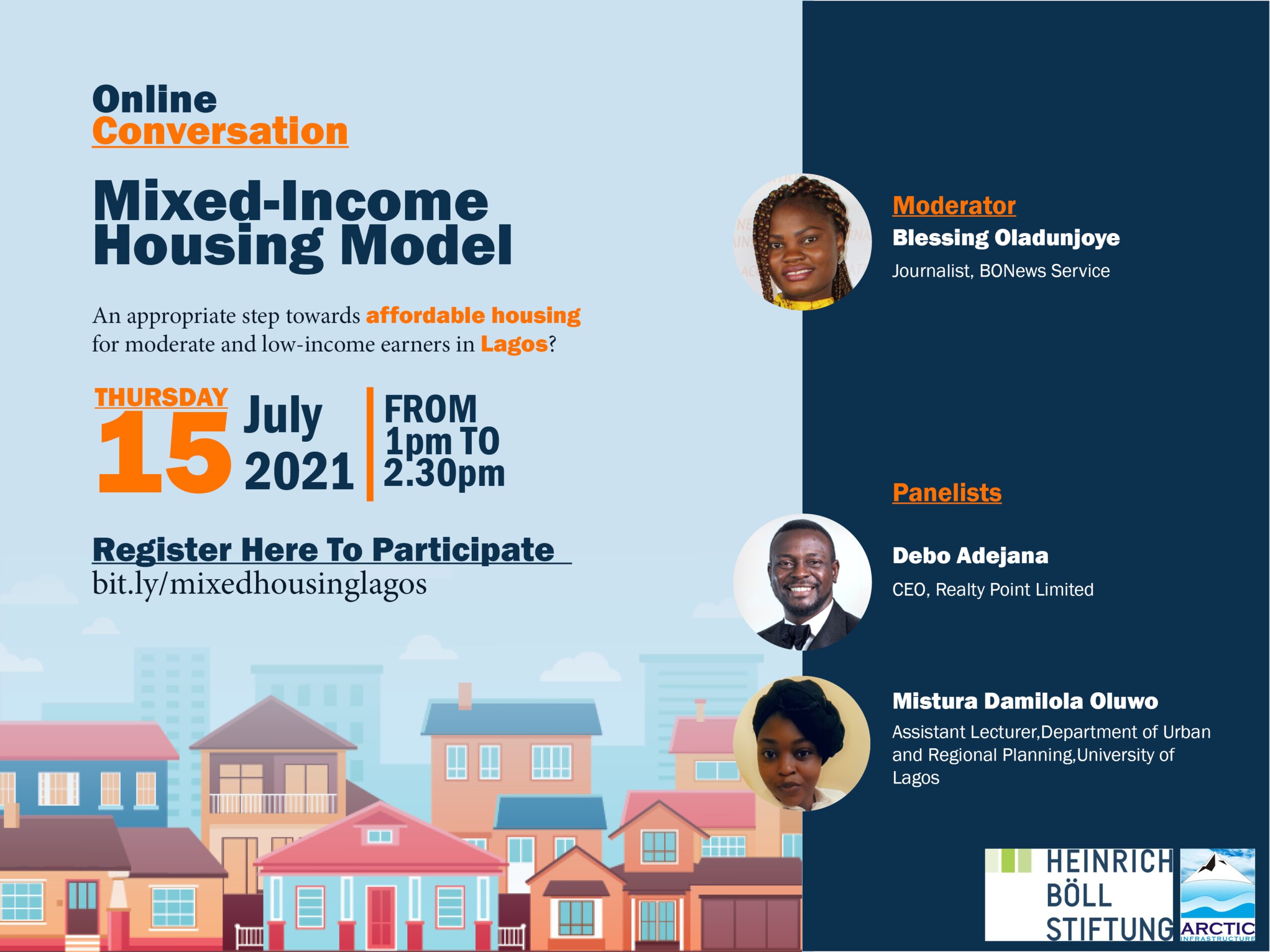Heinrich Boll Stiftung, (HBS) Nigeria and Arctic Infrastructure are proposing the Mixed Income Housing Model as a strategy to address the housing deficit in Lagos and to ensure availability of adequate and affordable housing to low and middle income earners in the State.
The organisations, through a draft bill titled, ‘A Bill for Mixed-Income Housing development in Lagos State’, want to contribute towards building cohesive and safe neighbourhoods which cannot easily degenerate into slums.
During a webinar, organized by the organizations to create awareness and seek contributions from members of the public before introducing the bill to the Lagos State House of Assembly, participants believe that the bill, if passed, would serve public interest, especially marginalized groups.
One of the panellists at the webinar, Debo Adejana, CEO, Realty Point, and a real estate entrepreneur opined that the initiative being proposed with the bill is largely in public interest.
Further speaking on the importance of the bill, Adejana said, “we’ve gotten to a state where bills like these are majorly like a saving grace and it would help to address issues of security and poverty being promoted with the way housing is structured in the country.”
He thereafter remarked that , “for the sake of prosperity and safety of this nation, this bill should survive.”
Adejana recommended that “the bill should make provision for a monitoring process to ensure compliance and Private sector should be incorporated into the implementation of the bill.”
Another panellist, Damilola Oluwo, Assistant Lecturer at the Department of Regional and Urban Planning at the University of Lagos, who mentioned that poverty has been feminized and the marginalized population are further affected in accessing affordable and adequate housing, revealed that, “any regeneration or development project that excludes the needs of the majority of its population is a like body without a soul.”
Putting context to the need for the Mixed Income Housing Model, Oluwo explained that, “the issue of socio-spatial segregation started a long time when the colonial masters enacted the 1904 Caantonment Proclamation where the white and rich indigene were separated from the poor.
“We should not continue this anomaly, I think it time we broke the cycle. This bill will also change the paradigm of criminalization of poverty where the poor is not suitable to live with the rich. I believe it is also a pathway out of poverty and marginalization with proper monitoring and carefully planned strategy.”
Oluwo however expressed delight with the proposed bill, saying that, “it fits into the Lagos state development plan 2021-2025 which aims at making Lagos state Africa’s model megacity.”
A participant, Lape Saleh, believes that a social entrepreneurship model should be adopted to be able to get the buy-in of various stakeholders.
Earlier, Monika Umunna, Programme Manager, HBS, explained that the initiative has been in the pipeline since 2017, and it would require private housing development projects of a certain size to allocate 15% of their housing units to moderate and low income earners, organized in trade associations or housing cooperatives.
She also reiterated that the bill has consideration for marginalized groups like women (especially single mothers), elderly and persons with disabilities.
The webinar was attended by experts in the housing sector and moderated by Blessing Oladunjoye of BONews Service.
HBS is a German organization which focuses on ecology and sustainability, democracy and human rights, self-determination and justice while AI is a private establishment with a broad focus on infrastructure delivery, urban development and the environment.


